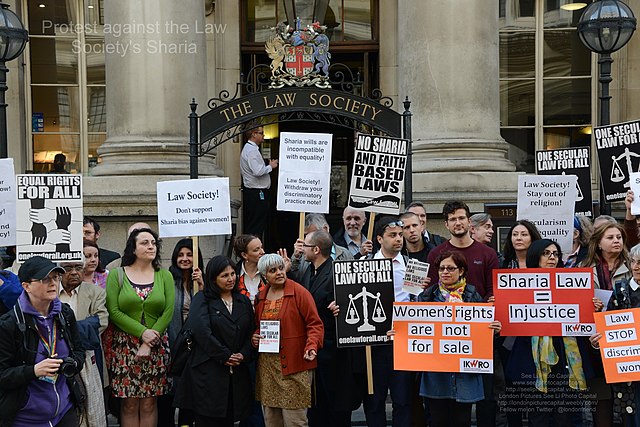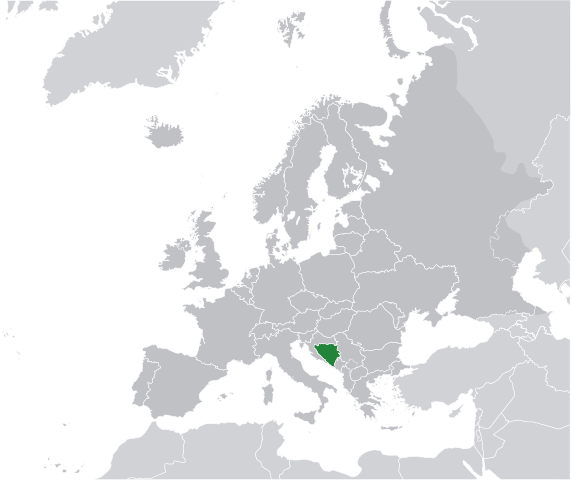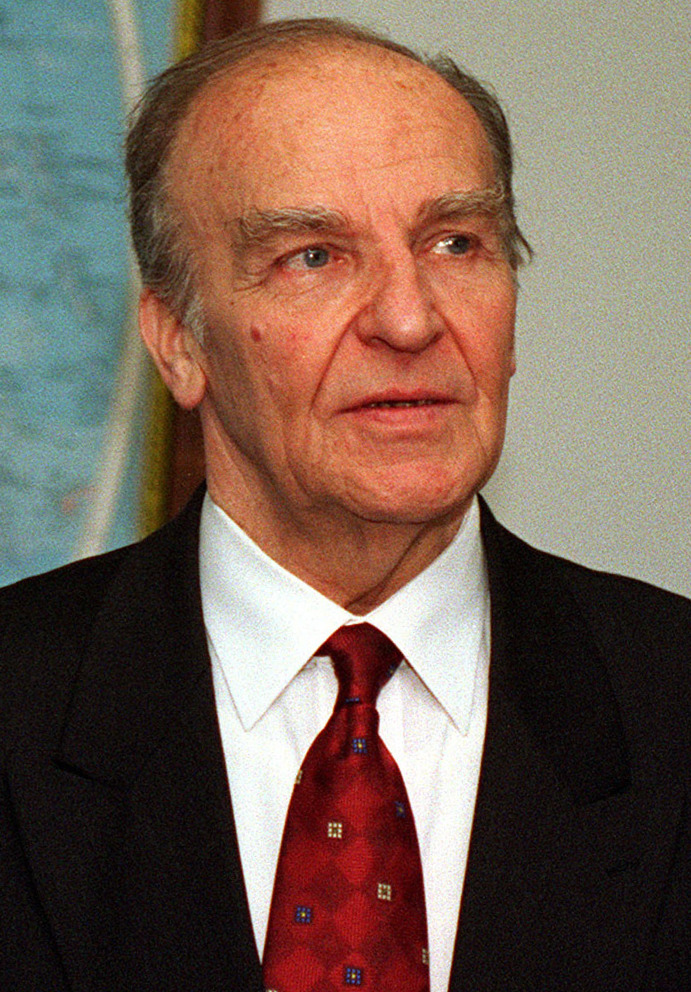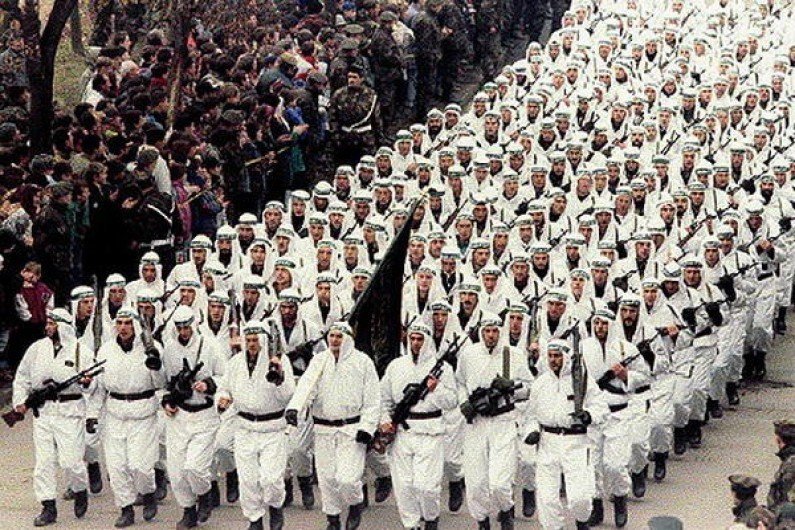【Vienna INPS Japan=Aurora Weiss】
In 2030, there will be 60 million Muslims living in Europe. According to the Pew Research Center, Muslims are projected to make up more than 10% of the total population in 10 European countries: Kosovo (93.5%), Albania (83.2%), Bosnia and Herzegovina (42.7%), Republic of Macedonia (40.3%), Montenegro (21.5%), Bulgaria (15.7%), Russia (14.4%), Georgia (11.5%), France (10.3%), and Belgium (10.2%). We are witnessing the process of the Islamization of Europe, including Belgium, France, Germany, and Sweden. (P-24)|GERMAN|JAPANESE|RUSSIAN|
Political Islam turned the Byzantine Empire into a fully Islamic land. The Middle East, Turkey and North Africa used to be Christian, Afghanistan was Buddhist, Pakistan was Hindu, and Iran was Zoroastrian. There are no post-Islamic countries. There were 1.8 billion Muslims in the world as of 2015 – roughly 24% of the global population – according to a Pew Research Center estimate. But while Islam is currently the world’s second-largest religion, after Christianity, it is the fastest-growing major religion. Indeed, if current demographic trends continue, the number of Muslims is expected to exceed the number of Christians by the end of this century.
57% of young Muslims in France think that Sharia law is above the state constitution
However, Muslim communities are also divided, while some pursuing extremism and violence, others fighting against it. Moderate groups of Muslims denounce extremist violence such as Islamic terrorism, Jihadism and radical Islamism. But, the most of the Muslims in Europa are living in closed communities, mainly in the suburbs of cities, which are de facto not subject to the law of the land. In these communities, Sharia law applies and families living there pay Islamic taxes.The French Institute of Public Opinion research showed that 57% of young Muslims think that Sharia law is above the state constitution and national laws. Sharia is the religious law of Islam based on the Qur’an and other sources, and in its most radical forms, it prescribes the death penalty, stoning, amputation of hands and limiting the rights of women. It is closely connected with political islam. 51% of Islamic doctrinal texts is about politics. The goal of these politics is the submission of all people to Mohammed and Allah. For over 1,400 years, submission to Mohammed and Allah changed many cultures to an Islamic one. Now, knowing the doctrine and tactics of Political Islam, we can help prevent its expansion with the intent of avoiding violence and human suffering. Many experts on public opinion in Europe believe that due to the results shown by the polls, all efforts should be invested in the secularization of the education system because it creates conditions for the development and emancipation of citizens.

Bosnia and Herzegovina – The Future EU member counrty with Islamic doctrine

Muslims constitute some 40% of the population of Bosnia-Hercegovina, they have defined the character of the republic because of the peculiarities of the power structure. Iran has also consolidated a Muslim leadership network supportive of Tehran’s world view. At the center of the Iranian system in Europe was Bosnia-Hercegovina’s President, Alija Izetbegovic, “a fundamentalist Muslim and a member of the Fida’iYan-e Islam organization,” who is committed to the establishment of an Islamic Republic in Bosnia-Hercegovina. The Fida’iyan-e Islam group advocates the struggle for the establishment of Islamic rule wherever Muslims live, and as early as the late-1960s, had already recognized the leadership of Ayatollah Khomeyni and maintained close cooperation with his people. Indeed, in 1970, Izetbegovic published his Islamic Declaration stating his world view: “There can be no peace or coexistence between Islamic faith and non-Islamic faith and non-Islamic institutions,” he wrote. “The Islamic movement must and can take power as soon as it is morally and numerically strong enough, not only to destroy the non-Islamic power, but to build up a new Islamic one.” After Khomeyni’s triumph in Tehran, Izetbegovic renewed his call to implement his Islamic Declaration, began organizing an Islamist political movement, and within a few years was thrown in jail for subversion.

Later, in pursuit of his goal to establish an Islamic Republic in Europa, Izetbegovic also visited Libya in the summer of 1991, seeking financial and political support. With the changes in the military situation in Bosnia-Hercegovina, primarily the tightening of the siege on Sarajevo, and the off-again, on-again cooperation between the Muslims and the local Croat forces.
In spring 1992, Muslim troops had been reinforced by “volunteers” from the ranks of several Islamist organizations. They arrived in Bosnia-Hercegovina in answer to Tehran’s call to fight the Jihad and eager to commit martyrdom in the name of Islam. They included highly trained and combat proven volunteers from Iran, Afghanistan, Lebanon (HizbAllah), and several other Arab countries. Most of the Arab volunteers had previously fought in the ranks of Palestinian terrorist organizations in Lebanon and the resistance in Afghanistan, and in fact General Amin Pohara of the Bosnian Army confirmed that some 180 Mujahideen had arrived from the Middle East by mid-August. Iranian sources claims that their number is more than one thousand. They did not only came to fight, but some of them have remained there to this day. Extremism spread thanks to some Islamic religious leaders who played a leading role in recruiting for ISIS in Bosnia and Herzegovina. But, the collapse of the Islamic State did not mean the collapse of the Balkan Islamist extremist movement. BiH has its own Islamic movement raised on home soil, as foreign experts write, which is largely the result of the life and actions of previous leaders, even Izetbegović, who in the 90s wholeheartedly welcomed the arrival of thousands of Islamic extremists in BiH and wholeheartedly welcomed the influx of billions of dollars from Muslim donor countries and Islamic missionary organizations with the intention of spreading extreme forms in Europe and beyond. In the last period, we had the opportunity to watch how the anti-Semitic movements unfolded in FBiH, and the members of the RBiH Army offered their services to Hamas, for which they received great applause.
Obscure organization the Third World Relief Agency (TWRA)
The capital of Austria, Vienna is the hot spot for the finacing of the terrorisam and arms trafficking.
In the documents and in the bank accounts of the Third World Relief Agency in Vienna (TWRA) -, Austrian investigators have tracked $350 million that flowed from Muslim governments and radical Islamic movements to Bosnia, writes John Pomfret in Washington Post Foreign Service published in 1996. At least half was used to purchase weapons illegally and smuggle them to the Bosnian government army, according to Western intelligence estimates. TWRA was founded by Fatih al-Hassanain, a Sudanese activist of the NIF (National Islamic Front). After he completed his medical studies in Sarajevo, he got linked to Bosnian-Muslim nationalists and founded in Vienna in 1987 an organization, the TWRA (Third World Relief Agency), to defend the rights of the Muslim minority in Yugoslavia. When the war escalates in Bosnia in 1992, he supported the resistance of the Muslims surrounded by the Serbians, especially Alija Izetbegovic and his Democratic Action Party, the SDA (Stranka demokratske akcije), which he supplies with arms. The funds are paid to the Bosnian combatants through the TWRA. According to estimates, it is about 350 millions dollars by the the contributions of the International Islamic Relief Organisation of Saudi Arabia (IIRO) and other Islamist NGOs are cumulated between 1992 and 1995. Such an activism obviously does not go unnoticed as IIRO identity cards are found on the bodies of mujaheddin killed in Bosnia.
Militants in the terrorist underworld are also believed to have used the relief agency to get money to the Bosnian government, including the wealthy Saudi Arabian emigre Osama Binladen, a suspected sponsor of militant Islamic groups around the Middle East. Binladen, a resident of Sudan until last year, is reportedly now in Afghanistan, where he has issued statements calling for attacks on U.S. forces in the Persian Gulf. Investigators say the agency also had ties to Sheik Omar Abdel Rahman, a radical Egyptian cleric who was convicted of planning several terrorist bombings in New York and is linked to the group that carried out the World Trade Center bombing in February 1993.The Bosian TWRA approach aimed at spreading radical Islam was adopted and continued to spread in other countries in the region. This is shown by the fact that a Muhammad Abbas, close friend of the Izatbegovic family, despite criticism, opened the same organization in Czech Republic and built the first mosque. Abbas is son of a Sudanese diplomat who settled in the Czech Republic after his university graduation there.
TikTok Jihad:

In the last few years, it has been shown that the perpetrators of terrorist attacks in the European Union are radicalized in virtual space. The Internet is one of the main channels for spreading extremist views and recruiting members. Social networks have increased the influence of jihadist and far-right or left-wing extremist propaganda by allowing terrorist organizations easier access to a wide target audience, sending targeted recruitment messages and supporting propaganda thanks to trolls. According to the EU report on the state and trends in the field of terrorism for 2020, in recent years applications that use encrypted messages, such as WhatsApp or Telegram, have been used to a large extent for coordination and planning attacks. Although the virtual space opened a whole new trend in the recruitment of Islamic extremists, some organizations focus on recruiting new members in schools, universities and religious spaces, such as mosques but also in prisons. Persons who are suddenly outside their social circles, are more inclined to accept new beliefs and join radicalized groups.
How much of a threat this type of attack represents for democracy in Europe was shown by the recent prevention of a terrorist attack that was supposed to take lives at a concert by megastar Taylor Swift in Vienna. However, lives were not saved when a minor extremist entered a police station in Bosnia and Herzegovina at the end of October and killed one police officer and seriously wounded another. It is also the fifth theoretical attack in that country in the last 15 years. The events in the Middle East, which began on October 7, 2023 with the Hamas terrorist attack on Israel and the Israel response with the killing of civilians in the Gaza Strip, have radicalized a significant number of people. We can witness the awakening of networks for spreading mobilizing narratives to perpetrate violence that everyone thought were completely extinguished after the defeat of ISIL in 2019. However, it was naive to believe that such a movement would disappear easily because since then several dozen terrorist attacks have been carried out in European Union countries in which around 60 people have been arrested, two thirds of whom are between the ages of 13 and 18. This new phenomenon that is spreading among young people, the so-called TikTok terrorists, invites minors aged 13, 14, 15 years old through social networks to engage as perpetrators of serious crimes such as terrorism.
This article is brought to you by INPS Japan in partnership with Soka Gakkai International, in consultative status with UN ECOSOC.
INPS Japan

Aurora Weiss holds a expert certificate from the CSPII (Center for the study of the Political Islam International).




